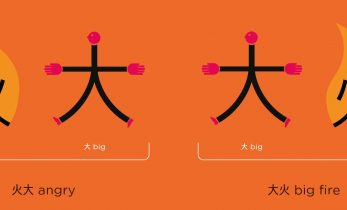Greater than 2 minutes, my friend!
The Wannabe Prophet ...who was the greatest poet in Arabia
أنا الذي نظر الأعمى إلى أدبي * وأسمعت كلماتي من به صمم
فالخيل والليل والبيداء تعرفني * والسيف والرمح والقرطاس والقلم
I am the one whose verse is seen (even) by the blind * And whose words are heard (even) by the deaf
I am well-known to the steed, the night and the desert * And to the sword, the spear, the paper and the pen
Ahmad bin al-Husain, also known as the ‘Seal of Poets’ is considered to be the greatest classical Arab poet whose verse is unsurpassed in terms of literary quality and wisdom quotient. Unfortunately, he has not found a place in translation with most of his work being confined to the language it was created in. There are many articles on the internet which discuss the difficulty faced by translators and academics in creating an English version of al-Mutanabbi’s diwan and rightly so, the supreme quality of his work is not an easy task to replicate in another language without distortion and loss of semantics.
Al-Mutanabbi (self-proclaimed prophet), as he was known, panegyrised rulers in Arabia and Egypt and received their patronage throughout his career. His most notable patron was the Hamdanid Emir Sayf al-Daula of Aleppo. Progressing from being a water-carrier’s son to becoming the greatest poet in Arabia, Al-Mutanabbi has seen it all and his claim to fame is uncontested.
Let us discuss the problem of Al-Mutanabbi’s linguistic stagnation in its source language and why his content remains linguistically inaccessible to a large portion of potential readership.
The foremost reason, as has been mentioned by various academics, is the sheer literary value of his verses which render them almost impossible to replicate in another language without corruption of meaning and loss of poetic value. It is Al-Mutanabbi’s profound integration with pre-Islamic poetry, Arabo-Islamic paradigms and a strong cultural tint in addition to impeccable conformation to Arabic standards of literary presentation of the medieval era which play a major part in the diwan being largely limited to its language of origin.
A lesser reason for that is the unwillingness of any academic translator to inadvertently damage the pristine nature of his works, which in some people’s opinion is best as it is.
Modern Arab poets are frequently translated into English, in part due to the effects of globalisation on Arabic and the simplicity of verse, both of which are largely missing in Al-Mutanabbi’s poetry. The ultimate achievement of an Arabic to English translator therefore would be to successfully translate Al-Mutanabbi into English, a task although dauntingly herculean is not altogether impossible. There have been some skilled and talented individuals who have successfully translated parts of Al-Mutanabbi’s diwan and have received positive reviews of their work. I shall end this post with some translated verses of Al-Mutanabbi for you to enjoy:
“Defiantly live, or in honour die,
Midst slashing blades and banners flapping high
Rage is best dispatched by lances’ points, and
Spearing spiteful chests shall their spite deny.”
“Beautiful women, as experienced men know,
Are but darkness wrapped in dazzling light aglow.
A life of friv’lous youth and worried age,
Its futile course to futile death will flow.”
“Strong resolves come in proportion to men of determination,
and noble deeds come in proportion to magnanimous men.
Little things are deemed great by little minds,
while grave calamities pale into insignificance in the eyes of the great.
Saif ad-Dawla’s prowess makes a whole army heavy with anxiety;
an anxiety that even mighty legions are inadequate to bear.
And he expects of others (the same fearlessness)
that he expects from himself; a thing that even lions do not demand.”
Note: The verses at the beginning of this post have been translated by myself and those at the end have been taken from Poem Hunter website.






Your post succeeded in arousing my curiosity about Al-Mutanabbi. Your translation of the opening verse is mesmerizing! I certainly hope you do more of his poetry in the future so the rest of the world can savor its beauty. Thank you!
Thank you Catherine for the encouraging comments, I sure do hope to translate him but not before translating Ibn Hani, another great medieval poet who they call – Mutanabbi of the West (here west refers to Maghreb).